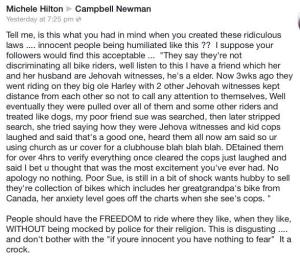 Smartphones are the new stalking weapon, a senate committee has heard. Photo: Eddie Jim
Smartphones are the new stalking weapon, a senate committee has heard. Photo: Eddie Jim
Smartphones are increasingly being used to stalk and harass women in Australia, a Senate inquiry into domestic violence has been told.
Not only are they used to bombard women with texts and calls, they can also be used to track a victim through Facebook entries, phone-location apps and GPS.
Women’s Services Network chairwoman Julie Oberin also told the inquiry last week a perpetrator would, in some cases, secretly download spyware onto their partner’s phone, which enabled them to read emails and texts, see who they talked to and what they were searching on the internet. They could also potentially use the phone to listen in on conversations.
Ms Oberin first noticed that the domestic violence challenge was changing when women she was putting in safe houses in regional Victoria started to be found by their ex partners.
“We had one particular case where two of our clients were on a bus going from the refuge to the shopping centre,”she said. “When the bus pulled up at a bus stop, the partner of one of the women got on and started ordering her back home. He wasn’t even supposed to know that she was in that town.”
Ms Oberin and her colleagues worked out that the woman had been found through her smartphone. “That was pretty scary for us as refuge workers to realise that this is a brave new world.”
More than 80 per cent of domestic violence workers surveyed by the Domestic Violence Resource Centre Victoria last year said smartphones and social media were being used to stalk victims.
Similarly, Women’s Legal Services NSW solicitor Alex Davis said that for about 80 per cent of the clients she sees for family law, domestic violence and sexual assault issues, smartphones will be a factor.
Sharon Clark, who manages a Berry Street family violence service in North Melbourne, said women are now instructed to switch their phones to flight mode when they first present for support. About 18 months ago, Ms Clark and her team changed their standard introduction form to include questions such as: Who set up your phone? Who set up your Facebook account? Who has access to your passwords?
When talking to domestic violence workers, Fairfax Media heard examples of men “gifting” their children with smartphones containing spyware and of victims not realising how their different accounts – for example email, YouTube and mobile – may be synched.
Those within the sector say the challenge is to educate victims, police and community workers about how to use smartphones safely and to get the necessary funds to do this. But the technology is also changing quickly. Last week, the Women’s Services Network received a call about a woman who was being sent videos of herself in her lounge room by a former partner. He had been hacking her smart TV.
There is also concern about the arrival of spoofing technology in Australia. This allows people to pretend to be someone else – either via text messages or phone calls. The technology also exists to alter voices from male to female, which could enable a perpetrator to call police, banks and phone companies and impersonate their victim.
US domestic violence and technology expert Cindy Southworth visited Australia last month and met with Minister Assisting the Prime Minister for Women Michaelia Cash. Ms Southworth stressed that the smartphone technology does not cause abuse, it just facilities it. “Essentially, it is misogyny plus technology equals high-tech stalking.”
She said the answer for victims was not to simply turn off their phones. Victims of abuse not only had the right to be able to use the same technology as anyone else – they needed it to work and access support networks .
Smartphone technology also provides important opportunities for women to install apps to message friends or emergency services if they are in trouble, and allow them to collect evidence from perpetrators. This includes taking screen shots of abusive texts and using their phone’s camera and GPS co-ordinates to show a partner has breached an apprehended violence order.
Ms Oberin said: “Women have got to be embracing and in control of technology.”
Tips for smartphone security:
Lock your phone with a code and do not share it with anyone.
Turn off the GPS on your phone.
Turn off Bluetooth on your phone when not in use.
Avoid buying a “jail-broken” phone (that has removed the manufacturer’s restrictions) as this will be much more vulnerable to spyware.
If you think you are being monitored by a partner:
It may be dangerous to change your behaviours, such as suddenly deleting your history, as an abuser may become suspicious.
Use a safer device – such as a library computer – to research an escape plan.
Sources: National Network to End Domestic Violence, Safety Net Australia
In Australia, about one in three women has experienced physical violence and almost one in five has experienced sexual violence since the age of 15.
If you or someone you know is experiencing domestic or family violence, call 1800RESPECT or 000 in an emergency.
Phone safety resources:


 Are you a would be rapist?
Are you a would be rapist?